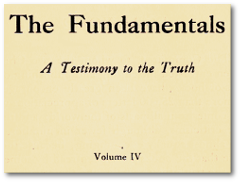Strangers - 1 Peter 1:1-2
 Reading sermon outlines has never been one of my favorite things to do. Creating them, though, is another story. It’s therapeutic. The other day I discovered that dusting off old ones and tidying them up was a healthy exercise as well. There’s a certain amount of “preaching to yourself” involved, and who doesn’t need more of that?
Reading sermon outlines has never been one of my favorite things to do. Creating them, though, is another story. It’s therapeutic. The other day I discovered that dusting off old ones and tidying them up was a healthy exercise as well. There’s a certain amount of “preaching to yourself” involved, and who doesn’t need more of that?
We also occasionally get requests for sermon outlines at SI—and I’m pretty sure I’ve got a handful or two collecting digital dust on my hard drive.
This first installment dates from 2002, the beginning of a series preaching through 1 Peter. I like to think my later outlines are much better, after a decade of practice (and some small improvements did creep in here and there during editing). It did my heart good to ponder the truths here and I hope they will bless some of you as well.
Discussion
Did Jesus Descend into Hell?

Did Jesus “descend into Hell”? We discussed this one Wednesday night in our Doctrinal Disciples class. Here is a summary of the issue.
A commonly held view is that Jesus descended into Hades between His death and resurrection. Its popularity stems from the statement “he descended into hell” in one version of the Apostles Creed affirmed in many churches. It also appears to be supported by some NT texts such as Ephesians 4:9 and 1 Peter 3:19. This view usually argues that Jesus emptied the compartment of Sheol/Hades that contained the OT saints, whom He then transferred to heaven (“he led captivity captive” Eph. 4:8).
First, a little history. The earliest form of the Apostles Creed (2nd century AD) did not contain this statement. It appeared first in a Latin text of the Creed in the 6th century AD (descendit ad inferos, “he descended into the lower regions”). From there it began to appear in Greek versions of the Creed and finally morphed into “he descended into hell” in the Middle Ages. This statement was not included in the more detailed Nicene Creed which dates from 325 AD. Thus it appeared in no creed before the 6th century AD. It may have been mentioned by some of the fathers, but it definitely was not a distinctive doctrine confessed by the early church. The view developed quite fully in the Middle Ages. The expression “the harrowing of hell” describes his supposed action in emptying hell of its righteous OT inhabitants. They were supposedly the ones on the other side of that “great gulf” between the righteous and the wicked. But if it was such an important aspect of our Lord’s saving activity, why did it develop so late in church history?
If someone asks me what happened to Jesus after his death, I simply quote what Jesus stated and leave it at that: “Father into your hands I commit my spirit” (Luke 23:46). Why is that so difficult to understand?
Discussion
Preaching & Evangelism
On my blog I have posted Part 3 of a 3-part series on Monergism vs. Synergism. It is subtitled Preaching & Evangelism. In the article I show how each view approaches the task of preaching and evangelism.
Discussion
The Bible and Modern Criticism
 [node:22019 collapsed body]
[node:22019 collapsed body]
CHAPTER III THE BIBLE AND MODERN CRITICISM
BY F. BETTEX, D. D., PROFESSOR EMERITUS, STUTTGART, GERMANY
TRANSLATED FROM THE ORIGINAL GERMAN BY DAVID HEAGLE, D. D.

Discussion